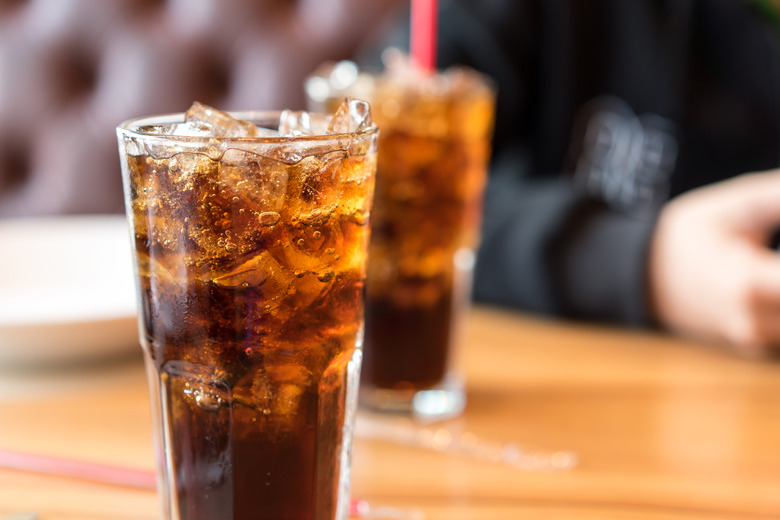Is Carbonation Affected By The Temperature?
Carbonation refers to carbon dioxide dissolved in a liquid, and the rate at which carbon dioxide dissolves or is soluble depends on temperature. When the temperature is raised, the rate of dissolution in liquid is decreased, and vice versa when the temperature is lowered. This basic principle explains how temperatures affect carbonation.
Beverage Tastes and Storage
Beverage Tastes and Storage
The taste of carbonated drinks depends on the temperature at which they're stored. This can be explained by the fact that temperature has to be lowered to stabilize the content of carbon dioxide. The resulting conditions will lower the pH to between 3.2 and 3.7, giving the drink a sour taste that describes typical soda flavor. This is the reason why carbonated beverages should be consumed when cold.
Carbonation Process
Carbonation Process
The process of carbonation is based on the principle that high pressure and low temperature maximize gas absorption. The process begins once carbon dioxide is brought into contact with the liquid. The gas dissolves into the liquid until the pressure becomes equal to the pressure which pushes down the liquid to stop the process. As a result, the temperature has to be lowered to about 36 to 41 degrees Fahrenheit to continue the process.
Bubbling or Fizzing
Bubbling or Fizzing
When a carbonated drink is opened or poured into an open glass, it bubbles or fizzes to indicate that the carbon dioxide is slowly evaporating or dissipating. Once pressure is reduced, carbon dioxide is released from the solution in the form of small bubbles, making the drink froth or fizz regardless of temperature. When the carbonated drink is colder, the dissolved carbon dioxide is more soluble and fizzes more when opened.
Loss of Carbonation
Loss of Carbonation
Carbonated drinks tend to lose their fizz at higher temperatures because the loss of carbon dioxide in liquids is increased as temperature is raised. This can be explained by the fact that when carbonated liquids are exposed to high temperatures, the solubility of gases in them is decreased. Consequently, gas that has not dissolved can easily be lost.
References
- Gary Beene's Information Centre: Temperature
- Effect of Temperature and Pressure on The Carbonation of Water
- TrueTeX: Carbonating at Home with Improvised Equipment with Soda Fountains; Richard J. Kinch
- Discovery Education: Soda and Celsius: An Experiment with Heat and Temperature Using Carbonation
- Food and Agricultural Organization: The effects of elevated CO2 and temperature change on transpiration and crop water use; Siebe Van De Geijn
Cite This Article
MLA
Debbi, Harold. "Is Carbonation Affected By The Temperature?" sciencing.com, https://www.sciencing.com/info-8793154-carbonation-affected-temperature/. 27 July 2011.
APA
Debbi, Harold. (2011, July 27). Is Carbonation Affected By The Temperature?. sciencing.com. Retrieved from https://www.sciencing.com/info-8793154-carbonation-affected-temperature/
Chicago
Debbi, Harold. Is Carbonation Affected By The Temperature? last modified March 24, 2022. https://www.sciencing.com/info-8793154-carbonation-affected-temperature/
